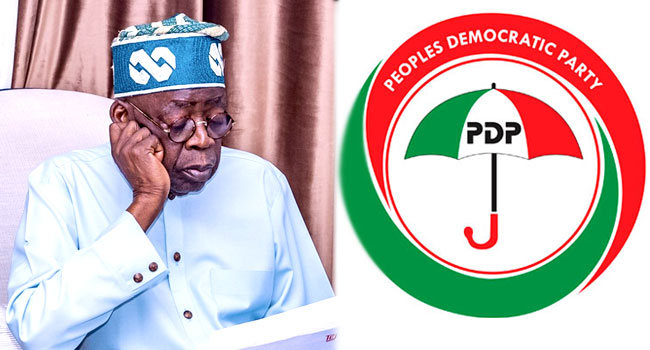Marketers Back Refineries’ Sale, Project Lower Fuel Prices
Oil marketers and industry stakeholders have expressed support for the proposed sale of Nigeria’s refineries currently managed by the Nigerian National Petroleum Company Limited (NNPC), stressing the need for the process to be transparent, inclusive, and accountable.
They argued that privatising the Port Harcourt, Warri, and Kaduna refineries—which have consumed trillions of naira in rehabilitation and maintenance efforts without tangible results—would finally open up the downstream sector to real competition, help stabilise prices, and end what many have described as a persistent financial drain.
Their reactions follow recent remarks by NNPC’s Group Chief Executive Officer, Bayo Ojulari, who disclosed that despite ongoing rehabilitation works on the refineries with a combined capacity of 445,000 barrels per day, results have fallen short due to the facilities’ outdated condition.
Speaking to Bloomberg on the sidelines of the 9th OPEC International Seminar in Vienna, Austria, Ojulari revealed that the NNPC is currently reviewing its refinery strategy and expects to conclude this assessment by the end of the year.
He added that while the sale of the refineries is not yet confirmed, it remains a possible outcome:
> “What we are saying is that sale is not out of the question. All the options are on the table, to be frank, but that decision will be based on the outcome of the reviews we’re doing now,” he said.
The proposal coincided with comments by the President of the Dangote Group, Aliko Dangote, who suggested that due to years of mismanagement, the refineries may never be commercially viable again.
Industry analysts believe that, if handled transparently, the plan could finally address longstanding inefficiencies and financial waste. The National President of the Petroleum Products Retail Outlets Owners Association of Nigeria, Billy Gillis-Harry, also described privatisation as the most logical path forward, given the refineries’ troubled history.
He stated, “Well, if you go back a few months, PETROAN had done a very careful evaluation of the situation, and we had advised that privatisation of the refinery will be the best option. And we still maintain the same mindset.
So if NNPCL has come around, almost about six months or thereabout to get to the same conclusion. It only tells you that PETROAN does a very well detailed empirical analysis. We do wish them well.”
However, the association warned against turning the refineries’ sale into a political exercise devoid of clarity and stakeholder engagement.
He noted that the petroleum refining space should be opened up to encourage multiple players in the market, arguing that competition, not monopoly, will ultimately drive efficiency and ensure availability of petroleum products.
“Let the privatisation process, if they ever want to birth it, be done properly and it should all stakeholders. MEMAN, DAPPMAN, PETROAN, IPMAN and NUPENG. We should all be part of the process,” Gillis-Harry stated.
The PETROAN president also expressed disappointment with the current administration’s lack of follow-through on promised investigations into past refinery rehabilitation projects.
He referenced the now-elapsed 30-day ultimatum issued for revamping the Port-Harcourt refinery, questioning the silence surrounding its outcome.
He asserted, “The administration came in and this is the concern I have about politicising our public enterprises. They came in a zest to even say they want to review, research and probe to know what it was used for.
“We have not even heard any of the result of those investigations and then suddenly, selling the refineries becomes an option on the table. So you can clearly see that it is a situation that we really need to be careful about, because we are talking about our future.
“For us at PETROAN, we do know that government cannot run this business of refining and make it successful and that is why we have recommended that there should be a privatisation process which should include the grassroots stakeholders. It is very critical that even before discussion is on, let us see what is the result of the investigation.
“What is even the conclusions of the revamping that was given 30 days, for which PETROAN came out and said, let 30 days be days. That has even elapsed now and nothing seems to have even started. We don’t even know whether it is the jinx of NNPC or Nigerians oil and gas or some cabal. We need to be sure what we are doing in this country. We are only a group calling for accountability and we hope conversations will be held and answers will be given.”
Echoing similar sentiments, the National Publicity Secretary of the Independent Petroleum Marketers Association of Nigeria, Chinedu Ukadike, described the refineries as a burden on public finances.
According to him, the billions already sunk into turnaround maintenance efforts had yielded no tangible results. He noted that IPMAN had earlier called for the declaration of a state of emergency in the refining sector, describing it as long overdue.
Ukadike noted, “For me, NNPCL is a private investment owned by the federal government and it has been there for decades, supplying the need of Nigerians as at time. But in the last 15 years, it hasn’t been operational. The running cost is even higher than what it is earning in revenue or produce.
“So it is imperative that government looks at this and chart the best way forward, either to sell off the refinery or repair. But we have found out that, for a long time now, repairs is not imminent.
“And billions of naira have been sunked to do a turnaround maintenance. So whatever the government can do, to ensure that the property is being utilised. Like they did with Indorama, is acceptable for us. So that it can drive competition in the industry.”
When asked if the refineries should be sold off as scrap, Ukadike disagreed. “They should not be scrapped,” he said. “We have advised before that the President should declare a state of emergency in the refining sector. That would yield positive results.”
He, however, noted that years of corruption and poor technical management had rendered the refineries dysfunctional despite billions of naira spent on rehabilitation.
“There’s nothing wrong in attempting repairs, but it’s clear now that corruption and inexperience have led to the waste of billions of naira on the three refineries, and yet, they’re still not working. At this point, the best option is to sell them,” he stated.
Quoting a local proverb, he concluded, “When your dog no longer recognises your members of your family, the owners is advised to sell it for another owner, who might know how to treat it well.”
Also reacting to the development, energy economist and policy expert, Kelvin Emmanuel, raised alarm over the failure of anti-corruption agencies to act on what he described as a clear case of economic sabotage.
“It will be a travesty if the Attorney-General of the Federation and the EFCC Chairman allow the immediate past management and board of NNPC led by Mele Kyari to go scot-free without investigation and recommendation for prosecution,” he wrote in a post on X handle.
The PUNCH
7/14/2025, 11:23:20 AM
views 14736
8003







